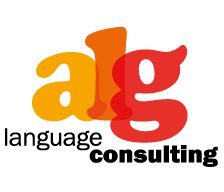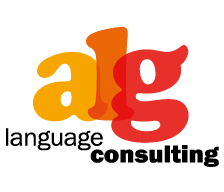The world of sport is a global stage where athletes, coaches, trainers and fans come together to share their passion for competition.
In our current multicultural environment, communication becomes a key element for the success of any sporting event. This is where sports translations come into play. Let’s see what they are all about in this article by ALG Language Consulting.
What are sports translations?
Sports translations embrace a wide range of language services for the world of sport, focusing on a variety of texts and content, including:
- Event participation applications: international events involve many different countries and therefore all communications and registration procedures must be clear and accurate, from the regulations right through to the various forms, clauses and timescales. An incorrect application could mean exclusion from the event.
- Marketing and advertising material: advertising campaigns and slogans must convey a unique global message, in words that are clear and comprehensible to everyone. It is important business for the sponsors.
- Websites, social media and information material: institutional websites and the various social media channels must respect the original content without omissions and ambiguities. Not to mention the ticketing systems and sale or refund conditions.
- Official documents: rules of the game, technical manuals, competition announcements, contracts and commercial agreements.
- Press releases: news on events, results, transfers or injuries of players and other information of public interest.
- Multimedia content: interviews, videos, radio and television broadcasts relative to sporting events.
The translation of these texts requires specific language skills and in-depth knowledge of the world of sport. Sports translators must be familiar with a precise updated terminology, and be able to grasp the cultural and linguistic nuances of each context.
Key competences of a sports translator
In addition to language skills, sports translators must have a good knowledge of the rules and regulations of the various sports, the specific terms used for each discipline and the cultures of the countries in which they are practised.
They must also be able to work rapidly and accurately, often under pressure and with tight deadlines, for example, updating the medals tables and reporting during the Olympics when there is a world audience anxiously waiting!
The role of sports translations
Sports translations play a fundamental role in guaranteeing effective communication and mutual understanding between all the players involved in the world of sport. Let’s look at their role in detail.
Promoting sporting events to a global audience
Accurate and localized translation of information and logistical material, brochures and advertising messages can reach fans and enthusiasts worldwide, increasing visibility and interest in sporting events.
Facilitating international collaboration
Accurate translations of official documents, contracts and commercial agreements facilitate collaboration between teams, sports federations, sponsors and event organisers worldwide.
Guaranteeing a fair and safe sporting experience
Clear and comprehensible translations of the rules of play and the safety regulations enable the athletes to compete fairly and safely, regardless of their mother tongue.
Promoting intercultural understanding
Sports translations are becoming increasingly important. They are an essential element for the success of international sporting events, for the promotion of sport as a tool for intercultural dialogue, bringing people together and sharing values aimed at creating a more inclusive global sporting community.



